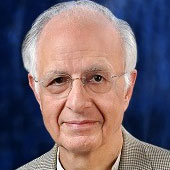Can Technology Facilitate Democracy? The Case of India
Technology might help countries like India with government services, but it’s no silver bullet for the business of governance.
October 15, 2017
The Aadhaar project – India’s nationwide, biometrically-supported identity card effort – was a tour de force of innovation and organization. Its purpose was to create a national database that makes it possible to validate the identity of every citizen anytime anywhere in a matter of seconds.
The process was driven forward by the Unique Identification Authority of India, operating under the chairmanship of Nandan Nilekani. He inspired a large network of organizations and individuals to collaborate to provide over a billion Indians with the cards. These individuals were not in one organization under his command-and-control, yet they worked together very well.
Can technology Facilitate Democracy? The Case of India
Climate Change: Can Today’s Societies Make Big Choices?
Many technological innovations were combined. Over a billion Indians in towns and villages throughout the length and breadth of India were enrolled with their biometric data.
The successful implementation of the Aadhaar project is now raising some contentious socio-political issues that were beyond the scope of the project.
Data privacy is one. Mr. Nilekani rightly says that how the identity data that is now available is used or misused will depend on other organizations.
The Indian government, for its part, says that Aadhaar is the solution to problems of leakage in many welfare schemes. In its view, it is now possible to ensure that benefits will reach only the intended beneficiaries.
However, a program like Aadhaar — as arbitrary and well-executed it has been — will not provide the answers to questions of who should be the beneficiaries of the programs. These questions require complex and often contentious considerations of deprivations and entitlements.
Complex choices
In India and beyond, the concept of a “universal basic income” (UBI) is being promoted by some economists as the way to side-step complex socio-political questions.
Questions abound: How much is sufficient as a “basic” income? Also, if everyone is to be given this, regardless of whether they need it or not, the total amount the state must provide can be too large for its budget.
What this underscores is that seemingly rational economics cannot side-step emotional, socio-political debates about who should be the beneficiaries of state-provided assistance. Moreover, as much as some people might wish it or advocate it, such complex societal issues do not have digital solutions and technology cannot provide the answer.
No salvation in tech alone
The proliferation of digital communication and computation technologies is raising enormous issues of data privacy and data misuse. India’s Aadhaar project is inevitably embroiled in them.
The regulation of the Internet, social media and other so-called “smart” technologies is a global issue. It will require resolution of contentious issues about citizens’ rights versus government responsibilities, as well as about private property rights vis-à-vis public interests.
Contending principles are involved. Computer calculations will not resolve these matters. Democratic deliberation is required.
Beyond Buzzwords
Lately, “E-governance” has become a buzzword. Technology firms are winning large e-governance contracts from governments in many countries. However, E-governance may be a misnomer for what these firms are assisting governments to do. With so-called e-governance, governments are actually improving service-delivery to citizens.
“Governance,” on the other hand, is a process of making change, shaping policies and taking decisions. What is called “e-governance” may be better described as “e-government.” After all, it deals almost entirely with effective delivery of services by government, rather than subjective and innovative processes of governance.
In designing e-government processes, it seems best to eliminate human interference to ensure fair and consistent services. But for good democratic governance, citizens should speak and be heard. Human participation is the essence of good democratic governance.
Moreover, the purpose of a democratic decision-making process is to take in inputs from many diverse people and to let their interactions produce an innovative, best solution. Imposing a pre-determined solution onto the public is not democracy.
Smarter cities
Take the case of India. In my country, the quality of public services in cities is very poor. Technology can improve service delivery and therefore the Indian government is rightly pushing the use of technology in service delivery processes to make cities “smarter.”
However, a deeper problem — not just in Indian cities — is the lack of a plan that addresses the needs of all citizens and addresses — and possibly resolves — the many trade-offs that must be made democratically to satisfy them.
For example, what should India’s limited road-space be used for? More space for pedestrians? Or space for small businesses that serve local citizens (e.g., hawkers)? Or more space for the movement and parking of cars? Or where should a waste-disposal facility be located? In whose backyard?
These are remarkably universal questions (and decisions to be made). They must be made in every city and every country to make the city we live in a good city for everyone.
Making decisions is not the strong suit of technology. It is better at implementing decisions — or facilitating them. That makes it all the more important to ensure that the democratic processes incorporating technology are sound.
Takeaways
Any new technology might help with government, but it’s not guaranteed to aid in governing.
Governance requires choices and technology is a tool not a decisionmaker.
Merely layering technology onto old processes does not fix either corporations or societies.
There is no such thing as a policy decision that is objectively apolitical and requires no public decision.

